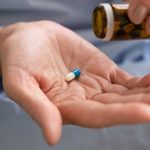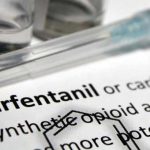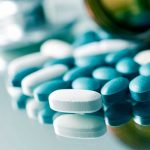In the United States, about 10 percent of adults experience drug addiction at some point in their lives. Also called substance use disorder, drug addiction is a serious, life-threatening disease. Fortunately, it’s treatable.
What Is Addiction?
Addiction is a chronic brain disease that makes you feel unable to stop abusing drugs despite harmful consequences, such as damaged relationships or job loss.
Scientists have not identified a specific cause of addiction. However, common risk factors for the disease include:
- stress
- genetics or family history
- low self-esteem
- mental health disorders like anxiety, depression, posttraumatic stress disorder, or schizophrenia
- environmental factors, such as easy access to drugs or exposure to drug abuse as a child
Substances Of Abuse
People abuse and become addicted to various types of substances, including illegal drugs and prescription drugs. The most common substances of abuse include:
Alcohol
According to the Substance Abuse and Mental Health Services Administration (SAMHSA), over half of Americans of legal drinking age consume alcohol.
Moderate alcohol consumption (drinking no more than one drink per day for women and two drinks per day for men) might not harm your health.
However, if you develop alcohol addiction (also called alcohol use disorder), you may experience a number of health problems, including liver disease, depression, and memory impairment.
Prescription Opioids
Prescription opioids are powerful pain relievers. Like illegal opioid heroin, they can make you feel relaxed and happy. If you don’t use them exactly as prescribed, though, they pose a high risk of addiction and overdose. The most common prescription opioids include:
Another well-known prescription opioid is fentanyl. This drug plays a role in the majority of opioid overdoses. That’s because it’s among the most powerful opioids, being 50 times more potent than heroin.
Benzodiazepines
Benzodiazepines are prescription drugs used to treat anxiety and insomnia. Examples include Xanax, Klonopin, and Valium. Some people abuse them (use them in a manner not prescribed by a doctor) to feel relaxed and happy, or “high.”
If you take benzodiazepines for a long time or abuse them, you face a high risk of addiction.
Methamphetamine
Methamphetamine (or “meth”) is an extremely powerful stimulant drug. Some people snort or inject it, while others cook it into smokeable rocks called crystal meth.
Because it’s so potent, meth poses a high risk of addiction and overdose. It can also cause other health problems, including hallucinations, severe tooth decay, and heart attack.
Cocaine
Cocaine is an illegal stimulant drug that causes a rush of energy, confidence, and euphoria (extreme joy). It’s usually snorted or injected. It can also be made into small, smokeable rocks called crack cocaine.
No matter how you use it, cocaine is highly addictive. It can also cause life-threatening health problems, including heart attack and stroke.
Heroin
Heroin is an illegal opioid that makes you feel relaxed and euphoric. It can be injected, snorted, smoked, or sniffed. Like other opioids, it poses a high risk of addiction and overdose. It also increases your risk of heart infections, miscarriages, HIV/AIDS, and other health issues.
Hallucinogens
Hallucinogens (also called psychedelics) are substances that alter your perception of reality. For example, you might see, hear, or feel things that don’t actually exist.
Popular hallucinogens include LSD, psilocybin mushrooms, peyote, and ketamine. When used on a regular basis, these drugs can cause persistent psychosis (loss of connection with reality) and, in rare cases, addiction.
Marijuana
Marijuana is a mixture of dried parts from the cannabis plant. It’s typically smoked, mixed in food, or brewed as a tea. It can cause euphoria, relaxation, and altered perceptions (such as slowed time or brighter colors).
Some people think marijuana is harmless. However, you can become addicted to it, especially if you use it every day or started using it as a teenager.
Prescription Stimulants
Prescription stimulants are medications used to treat attention deficit/hyperactivity disorder (ADHD) and narcolepsy (excessive sleepiness). They boost your concentration and alertness. Examples include Adderall, Ritalin, and Concerta.
Some people abuse prescription stimulants to boost their performance at school or work. This behavior can lead to addiction, depression, heart disease, and other health problems.
Signs Of Addiction
If you’re wondering whether you or a loved one struggles with addiction, look for these signs:
- frequent drug cravings
- irritability
- mood swings
- loss of motivation
- loss of interest in activities once enjoyed
- avoidance of friends and family members
- trouble completing tasks at work or school
- decline in personal hygiene
- tolerance (needing increasingly more frequent or larger amounts of a drug to feel the desired effects)
- drug dependence (experiencing withdrawal symptoms, such as anxiety or sweating, when you don’t use a drug)
Addiction Treatment Options
Like other diseases, addiction requires professional treatment.
However, not everyone benefits from the same type of treatment. Some people need inpatient treatment, which means they live at a treatment center and receive constant supervision.
Other people benefit from outpatient treatment, which means they regularly attend a treatment center while living at home.
In addition, whether inpatient or outpatient, many people need dual diagnosis treatment. This treatment approach addresses addiction alongside co-occurring mental illnesses.
When you enter a treatment program, health care providers will work with you to create a personalized treatment plan. This plan may include services such as:
Medical Detox
For many people, medical detox is the first phase of treatment. During detox, doctors help you gradually stop using drugs so you can avoid or reduce withdrawal symptoms.
They can also treat certain withdrawal symptoms by prescribing medications, such as sleep aids or anti-anxiety medications.
Behavioral Therapy
During behavioral therapy, a mental health professional will help you identify your triggers. Triggers are people, places, feelings, or other stimuli that make you want to abuse drugs.
You’ll then learn ways to manage those triggers, such as journaling, meditating, or spending time with sober friends.
Your therapist can also help you manage any underlying emotional problems or mental health conditions that contributed to your drug use.
Medication-Assisted Treatment
If you struggle with alcohol or opioid use disorder, your treatment plan may include medications that can ease cravings and withdrawal symptoms. These medications include:
- acamprosate, which can reduce alcohol cravings
- buprenorphine, which can reduce opioid cravings and withdrawal symptoms
- disulfiram, which discourages alcohol use by causing unpleasant symptoms, such as headache and nausea, when you drink alcohol
- methadone, which can reduce opioid cravings and withdrawal symptoms
- naltrexone, which blocks the pleasant effects of alcohol and opioids
Support Groups
When you’re recovering from addiction, you may feel like no one understands you. In a support group, you can connect with other people facing the same challenges. You may even develop friendships that last long after treatment ends and help you maintain recovery.
Wellness Activities
Most treatment programs offer activities that boost your health and take your mind off drugs. Depending on the program, these activities may include:
- yoga
- meditation
- swimming
- hiking
- arts and crafts
Aftercare Planning
Before you leave your treatment program, your health care providers will design an aftercare plan to reduce your risk of relapse. This plan will include strategies such as:
- ongoing therapy
- ongoing support groups
- regular exercise
- nutritional guidance
- sober housing (temporary housing that helps you adjust to life after rehab)
Even with a comprehensive aftercare plan, you may relapse. Relapse doesn’t mean you failed. It just means you need additional or modified treatment.
To learn more about addiction, please reach out to Northeast Addictions Treatment Center. We offer personalized, evidence-based treatment services for people struggling with substance abuse and co-occurring mental health concerns.
Sources
- Centers for Disease Control and Prevention — Drinking too much alcohol can harm your health
- National Institute on Drug Abuse — Commonly Used Drugs Charts
- National Institute on Drug Abuse — Treatment Approaches for Drug Addiction DrugFacts
- Substance Abuse and Mental Health Services Administration — Alcohol Use Facts & Resources
Written by
Northeast Addition Editorial Team
©2024 Northeast Addition Center | All Rights Reserved
This page does not provide medical advice.




